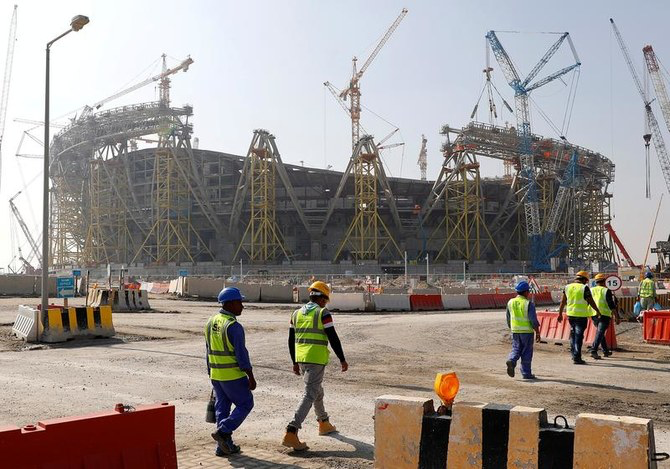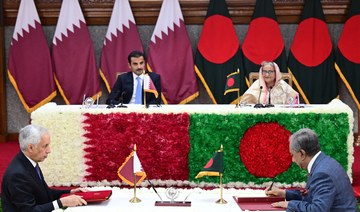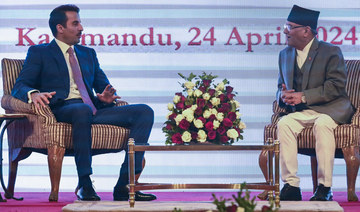Two out of five employees have hidden IT security incidents in workplaces across the globe out of fear of punishment, a new report from Kaspersky Lab and B2B International said.
Enterprises with over 1,000 employees are mostly vulnerable to staff not reporting cybersecurity breaches at 45 percent, while companies with a staff complement from 50 to 999 experiencing a lower instance at 42 percent. Small enterprises, or those with 49 employees or less, have a greater control over their staff on IT matters as only 29 percent did not report cybersecurity breaches.
The report, titled Human Factor in IT Security: How Employees are Making Businesses Vulnerable from Within, was based on a survey of 5,000 businesses across the globe.
“Not only are employees hiding incidents but … uninformed or careless employees are one of the most likely causes of a cybersecurity incident — only second to malware. While malware is becoming more and more sophisticated each day, the surprising reality is that the evergreen human factor can pose an even greater danger,” the report noted.
“Forty-six percent of IT security incidents are caused by employees each year – that’s nearly half of the business security issues faced triggered by employee behavior.”
On average, ineffective cybersecurity costs industrial organizations up to $497,000 (SR1.86 million) a year, Kaspersky Lab estimated.
More than half of the companies affected by malicious software blamed it on inattentive staff and their lack cybersecurity awareness, while over a third blamed it social engineering schemes that intentionally tricked employees.
The problem of hiding incidents should be communicated not only to employees, but also to top management and HR departments,” said Slava Borilin, security education program manager at Kaspersky Lab. “If employees are hiding incidents, there must be a reason why.”
“In some cases, companies introduce strict, but unclear policies and put too much pressure on staff, warning them not to do this or that, or they will be held responsible if something goes wrong. Such policies foster fears, and leave employees with only one option – to avoid punishment whatever it takes. If your cybersecurity culture is positive, based on an educational approach instead of a restrictive one, from the top down, the results will be obvious.”
Two out of five employees hid cybersecurity incidents, Kaspersky Lab says
Two out of five employees hid cybersecurity incidents, Kaspersky Lab says

AI heralds new era for art, music, Riyadh summit told

- Forum explored innovations linked with Web3, a new stage of the internet driven by the cryptocurrency-related technology blockchain
- Web3 is expected to provide greater security, and give users more control over their data, opening new horizons for musicians and artists
RIYADH: Music has always been at the cutting edge when it comes to utilizing technological innovation, Paul Pacifico, CEO of the Saudi Music Commission, told a forum in Riyadh.
Experts discussed the impact of artificial intelligence on the creative industries during the Outer Edge summit held at The Garage in the Saudi capital on Tuesday.
The forum explored innovations linked with Web3, a new stage of the internet driven by the cryptocurrency-related technology blockchain.
Web3 is expected to provide greater security, and give users more control over their data, opening new horizons for musicians and artists, among others.
“Musicians have always experimented with every tool they could get their hands on,” Pacifico said during a panel titled “The Future of Creativity, including Music and Art.”
He cited the invention of the piano as an example, and said that artists would explore any medium or utilize any tool to convey their message.
“AI is everywhere, and is somewhat of a catch-all term for several technologies that converge around machines,” he said.
Pacifico encouraged artists to explore AI, adding that it is already integrated into many areas of their working life.
“We’ve already experienced AI in the creative space through algorithmic playlists on streaming platforms, backend processing, digital music production, and editing with software programs.”
The discussion also explored the intersection of technology and art, with speakers highlighting the potential for immersive experiences that merge the physical and digital worlds.
Saudi artist Khaled Makshoush, who works with digital pixel designs, is optimistic about AI applications in the creative realm, saying that that he sometimes uses the technology as a source of inspiration and a tool to enhance his artistic processes.
He said that some people view AI negatively because it can generate art based on the work of other artists.
“I would generate an image with AI to be inspired by what elements or colors to incorporate into a painting.”
Makshoush said that because he is quite indecisive, “an AI assistant who can advise me based on my previous artworks would be very beneficial.”
Melissa Wiederrecht writes JavaScript code to generate her artwork, and uploads her creations on web3.
The algorithmic and generative artist said that one exciting aspect of Web3 is its potential to showcase artwork in new and innovative ways. Artists can use blockchain technology to create unique digital pieces, secure ownership rights, and sell their work to collectors.
“For example, I’ll have AI pick five random colors; then maybe I’ll say pick a random sample of points, then throw some color around, and choose a style of mine,” she said.
Wiederrecht said that she can write an algorithm that generates infinitely different pieces of art from the same code.
“They all look similar, like they belong to the same collection, but they’re all completely unique,” she added.
Pacifico concluded by saying: “I want to see that bedrock that we’re putting in place enable generations after us to have much greater access to the freedom of expression and circular economy required to enable access for more expression for all.”
Germany charges six suspected Daesh-K members over attack plots

- The suspects are charged with founding a terrorist organization, among other things
- They intended to carry out high-profile attacks in Germany and Western Europe
BERLIN: Germany has charged six foreign nationals for allegedly plotting terrorist attacks on behalf of the Daesh Province of Khorasan (Daesh-K), the federal prosecutor’s office said on Wednesday.
The suspects, identified as Tajik citizens Mukhammadshujo A., Nuriddin K., Shamshud N., Said S., Raboni Z., and Kyrgyz citizen Abrorjon K., are charged with founding a terrorist organization, among other things.
They intended to carry out high-profile attacks in Germany and Western Europe but had no concrete plan when law enforcement intervened, according to the statement.
The suspects, who were arrested in July last year, had been in touch with Daesh-K, the Afghan offshoot of Daesh, which claimed responsibility for a mass shooting in Moscow last month in which at least 137 people were killed.
According to investigators, the suspects arrived in Germany via Ukraine after war broke out there in spring 2022, and formed a terrorist cell together with another member from the Netherlands.
They met regularly to discuss their intentions and scouted potential locations in Germany, the prosecutors’ statement said.
UK police arrest three over migrants’ deaths in Channel

- The men, two Sudanese nationals aged 22 and 19, and a South Sudan national aged 22, were detained
- Suspects were arrested on suspicion of facilitating illegal immigration and entering the UK illegally
LONDON: British police said on Wednesday they had arrested three men over the deaths of five migrants including a child who died attempting to cross the Channel from France the day before.
The deaths occurred when a small overcrowded boat carrying 112 people set out to cross one of the busiest shipping lanes in the world and panic took hold among the passengers not far from the shore.
Rescuers picked up about 50 people, with four taken to hospital, but others stayed on the boat, determined to get to Britain.
Three men, two Sudanese nationals aged 22 and 19, and a South Sudan national aged 22, were detained on Tuesday night on suspicion of facilitating illegal immigration and entering the UK illegally, the National Crime Agency (NCA) said.
“This tragic incident once again demonstrates the threat to life posed by these crossings and bring into focus why it is so important to target the criminal gangs involved in organizing them,” said NCA Deputy Director of investigations Craig Turner.
“We will do all we can with partners in the UK and France to secure evidence, identify those responsible for this event, and bring them to justice.”
French police are also continuing to investigate the circumstances surrounding the incident, alongside their British counterparts, the NCA said.
It added 55 people who were believed to have been on board the boat which arrived in Britain had also been identified.
More than 6,000 people have arrived in Britain this year via small, overloaded boats — usually flimsy inflatable dinghies — that risk being lashed by the waves as they try to reach British shores.
The deadly crossing on Tuesday took place just hours after the British parliament passed a bill paving the way for asylum seekers who arrive in Britain without permission to be deported to Rwanda, a policy which Prime Minister Rishi Sunak argues will deter people from making the dangerous cross-Channel journey.
New agreement to safeguard rights of Bangladeshi workers in Qatar

- 350,000 Bangladeshis are employed in Qatar, mostly in construction sector
- MoU signed during Sheikh Tamim bin Hamad Al-Thani’s visit to Dhaka this week
Dhaka: A new agreement between Qatar and Bangladesh includes commitments to establish protections for migrant workers, a top official said on Wednesday, as the Gulf state has been under harsh criticism over failing to safeguard the rights of laborers who constructed its 2022 FIFA World Cup infrastructure.
Migrant workers from South Asia, especially Bangladesh and Nepal, were indispensable to Qatar as it prepared to host the world’s biggest football event, and have been an important part of its economy. Some 350,000 Bangladeshis are employed by Qatar’s government, semi-government and private sector.
The jobs have enabled them to send remittances back home to their families, but many have reported contract violations and illnesses linked to unsafe working conditions. The problems entered the spotlight between 2010, when FIFA granted Qatar the World Cup, and 2022, when the event took place.
During the decade, seven new stadiums, an airport expansion, a new metro and hotels were constructed by 30,000 foreign laborers, according to the Qatari government. Rights groups and investigative journalists have estimated that more than 6,000 of them died in work-related deaths.
A new memorandum on Bangladeshi migrant workers — 80 percent of whom are employed in Qatar’s construction industry — was signed this week as Qatar’s emir, Sheikh Tamim bin Hamad Al-Thani, visited Dhaka.
“A joint working group will be formed for solving labor rights issues,” Khairul Alam, additional secretary at Bangladesh’s Ministry of Expatriates Welfare and Overseas Employment, told Arab News.
“Our Ministry of Expatriates Welfare and Overseas Employment will lead the joint working group from the Bangladeshi side.”
The agreement commits the Qatari and Bangladeshi sides to discuss “ways to develop legislation relevant to areas of labor” and includes plans for a review to ensure that worker rights are in place.
“Labor rights protection, safety and healthy environment issues have also been emphasized in the MoU, and mentioned several times,” Alam said.
“The agreement also said that in case of any issues regarding migrants both countries will sit together and solve the issues amicably.”
The signing of the agreement was welcomed by the Migration Program and Youth Initiatives of BRAC — Bangladesh’s largest development organization, which estimated that more than 1,300 workers from the country died in Qatar during the World Cup construction spree, with many deaths attributed to heart attacks.
“Most of our migrant workers prefer the Middle Eastern countries, and after Saudi Arabia, UAE and Oman, Qatar is the preferred destination for the Bangladeshi migrants. In this context, such a type of MoU on labor employment is helpful for the protection of migrant workers’ rights,” said Shariful Hasan, the program’s associate director.
Hasan told Arab News it was an “expression of interest from both sides to ensure the welfare of the migrants,” who were playing a significant role in Qatar’s development.
“If the migrant-receiving country like Qatar focuses on the welfare and protection of the migrants, it will create a win-win situation for both countries. I think the signing of this MoU is a big development toward this.”
Industrial private sector investments in Saudi Arabia more than double to reach $1.8bn

RIYADH: Private sector investments in Saudi Arabia’s industrial field more than doubled in the first quarter of 2024, surpassing SR7 billion ($1.8 billion), according to official data.
This marks a significant increase from the SR3.34 billion recorded during the first quarter of 2023, according to a report released by the Saudi Authority for Industrial Cities and Technology Zones, also known as MODON.
The report revealed a substantial rise in the number of constructed factories, reaching 6,683 in the first three months of 2024 compared to 5,894 in the same period last year.
Moreover, the total number of logistics contracts surged to 367, up from 223 in the first quarter of 2023.
The report also highlighted a significant growth in industrial contracts, with 276 agreements issued by end of March, nearly doubling the figures from the first three months of 2023.
Jeddah Third Industrial City led in contract issuance with 76 agreements, followed by Al Kharj Industrial City with 47. Sudair Industrial and Business City recorded 20 contracts, while Dammam Third Industrial City and Dammam Second Industrial City had 18 and 16 agreements, respectively.
Furthermore, the total regulatory visits conducted in industrial cities during the first quarter amounted to 1,867, underscoring MODON's rigorous oversight.
In terms of sectoral distribution, food industries secured the highest number of contracts in the first quarter of 2024, constituting 24 percent of the total. They were followed by mining at 12 percent, rubber products industries at 12 percent, chemicals at 8 percent, and electrical equipment at 7 percent.
Additionally, the number of food factories operating in the Kingdom reached 1,300, indicating the country’s expanded capacity in the sector. This underscores its commitment to the “Food Industry Localization” initiative, aimed at enhancing productivity, local production, and quality.
These figures come as MODON prepares to engage as a strategic partner in the inaugural Saudi Food Manufacturing Show.
Scheduled from April 30 to May 2, at Riyadh Front, the event will be under the patronage of the Minister of Industry and Mineral Resources Bandar Al-Khorayef.
MODON plans to showcase its products, services, and comprehensive solutions for the food industry at the show, targeting investors, small and medium enterprises, and entrepreneurs.
This effort is aligned with MODON’s role in the National Industrial Development and Logistics Program, aimed at fostering sustainable growth and enhancing value chains.
The show is expected to host 500 participants from around the globe, including ministers, officials, and industry leaders, as well as CEOs, investors, and experts.
It will feature discussion panels, workshops, and exhibitions, providing a vital platform for displaying the latest in services, products, and solutions for the food industry and its supportive sectors.





















